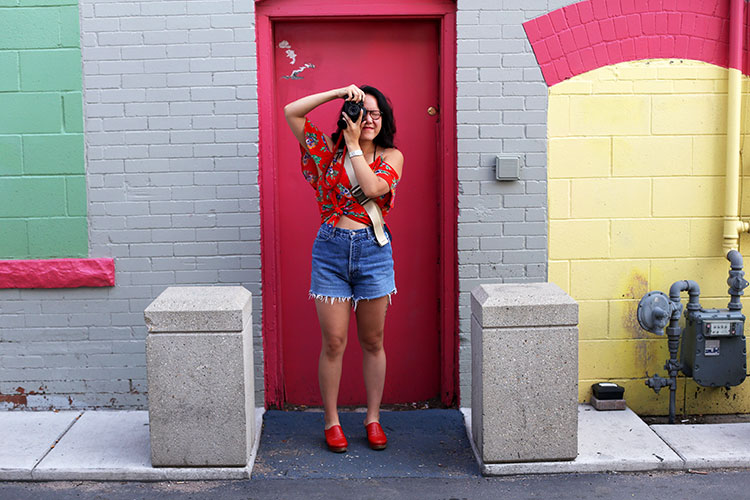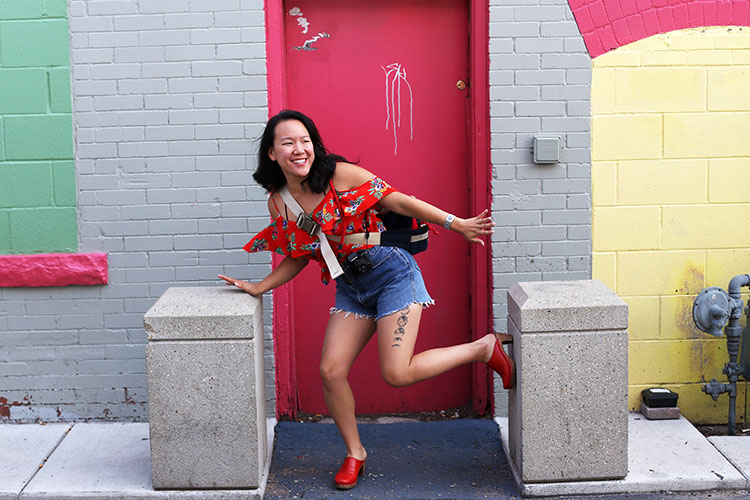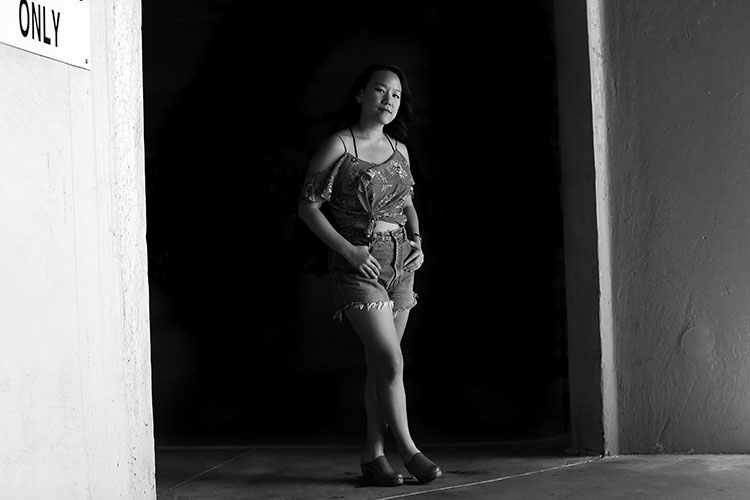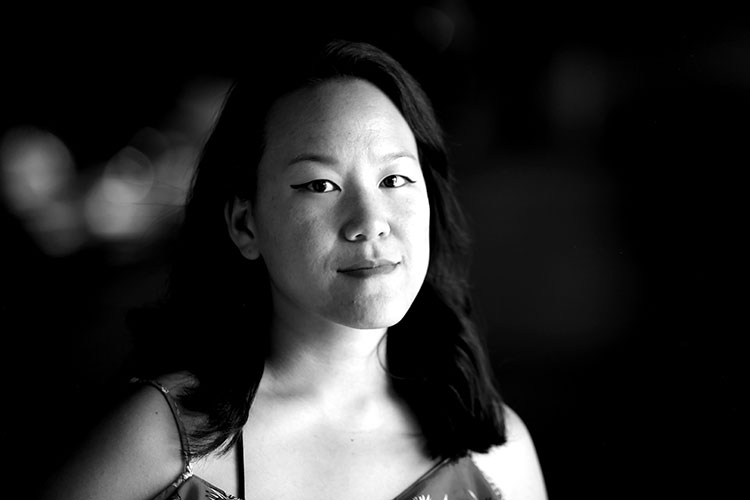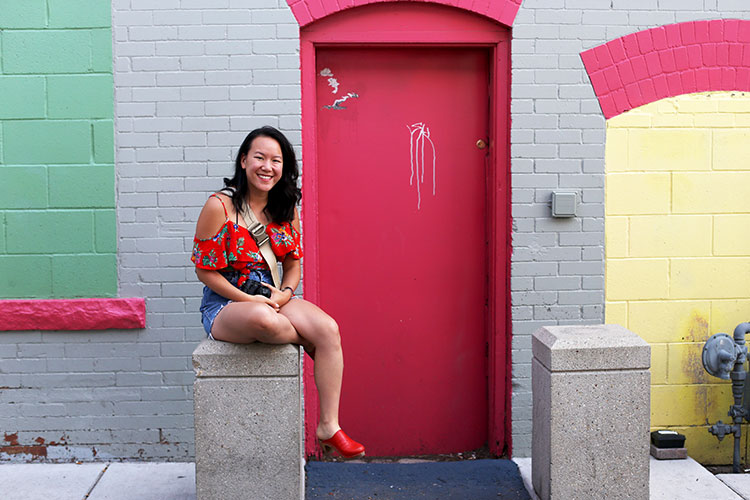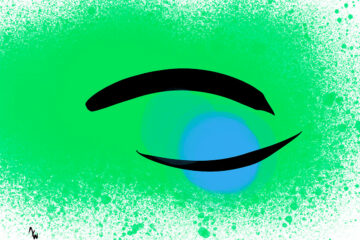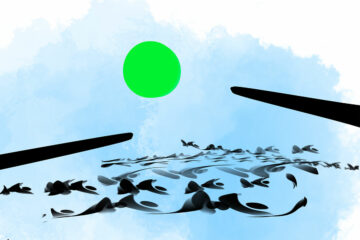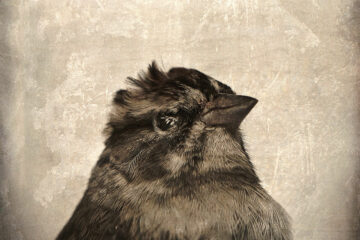Stephanie Yu carries a story of risk and empowerment, creativity and curiosity. It’s one that extends through multiple generations, continents and cultural divides.
When we sat down to talk at Wilder Bag Co., Stephanie’s curated second-hand clothing and handmade jewelry shop in Eclectic CO, we dived into what makes her feel human, vulnerable and inspired.
We also talked about the new feminism, why she advocates for outcasts, and confronting the shoulds with a very early midlife crisis.
Stephanie, 30, shares a story of love and courage, of family and freedom.
Meet Stephanie Yu.
Humanitou: In an interview with VoyageDenver, you said, “My goal is to curate a shop full of beautiful objects that will inspire others to travel and to follow their curiosity.”
How has traveling — and living in a diverse set of locations, including L.A., Portland, Santa Fe, Taipei — impacted your life?
Stephanie: I think travel really is the central piece of me as a human. I think it’s what makes me excited. It’s what makes me fearful. It makes me feel more human.
When I’m traveling as an Asian-American woman, whether in the U.S. or abroad, there’s a level of vulnerability, as far as being a petite human and not really knowing how to defend myself.
But I like that, as well, because I think being safe in the suburbs or in your home or around people you know all the time, I think it defeats the purpose of being a human. I think we should be dangerous at times. I think traveling is the healthiest danger you can put yourself in.
That also leads to coming back home and appreciating your home, and seeing it with new eyes, and appreciating it for what it is and what it could be. I think travel is also inspiring.
Humanitou: I think a lack of travel contributes significantly to a sense of isolation, ignorance and a fear of “other.”
In fact, that’s playing into what we’re experiencing culturally and politically now in this country, where I think there is a collective lack of broad travel experience — and the education that comes with it — that is embraced by Europeans, for example.
Stephanie: We’re super-insulated. I think that our borders are a lot less permeable than, say, Europe is.
I grew up in Southern California, and I didn’t drive into downtown L.A., which was 30 miles away from me, until I was 18 or 19. And that was with college friends who would take me in.
I thought, “Oh, my gosh. I’ve lived here for close to 20 years and I’ve never seen downtown L.A., even ChinaTown or Little Tokyo.” It was mind-blowing. I realized even in California how segregated it is, despite the fact it is one of the more diverse states.
When I lived in Portland, you even had your neighborhoods or quadrants. “Do you live on the east side or the west side? … Oh, the west side. Well, we’re not hanging out.”
It’s like, “Where are you from? What’s your identity? Because I only identify with people who are like me.” I think it’s exhausting.
That’s why when I traveled, I would usually travel alone. Maybe with one or two other people. We would have very little plans. We would drive to a city and walk it, taking our time.
I didn’t feel like I did that when I was growing up. My city’s like a mile long on one road. I went to elementary school, junior high and then high school, all down that road.
Maybe Wilder Bag Co. is fulfilling that lost desire I had as a kid to just take my time and be lost in a city and not feel like I have to find my way.
Humanitou: Do you feel that aspect of your childhood experience, of geographical insulation within a huge city, was by chance of, say, your family’s daily routines or was it intentional?
Stephanie: Definitely not chance. My parents were born in Taiwan. Their parents were born in China. All four grandparents basically fled China to Taiwan as refugees when they were all in their early 20s.
For them, there is a lot of trauma when it comes to traveling, because it was escaping. It was like, “The rest of my family is dead. I have to escape to a different place.”
All four of my grandparents never traveled. They didn’t know what a vacation was. They hung out in Taiwan in their neighborhood. They didn’t even go into Taipei, which is the heart of Taiwan.
I didn’t realize all this generational trauma until five years ago, when I was thinking about why my parents never leave Rowland Heights, which is where I grew up.
And I realized their parents made that traumatic travel to Taiwan, never vacationed, and that was just what life was. They sent my mom and my dad to the U.S. as their only children to go make a better life for themselves.
Money-wise, they could only afford to send one child, even though one of them had four siblings and the other one had three siblings.
Humanitou: That’s pressure.
Stephanie: That’s pressure, but my mom doesn’t see it that way. I’ve asked her about it before. She’s like, that’s just how it was.
So, for my parents, traveling from Taiwan to New Mexico for grad school, and meeting there, and then coming to L.A., for them, they’ve said, “That’s enough travel and feeling foreign, so we live in Rowland Heights, where it’s all Chinese-American immigrants.”
Their friends are all the same socioeconomic status. They speak the same dialect that my parents do. They’ve created a little piece of China-slash-Taiwan in California. And they will not travel.
We forced them to go to Europe and New York, and we were on these Asian bus tours, where you’re with a hundred Asian folks. You maybe get 20 minutes to explore the Met, and then you come back to the bus, and you go to a Chinese buffet.
It’s comedic, and it’s also very human. I understand why they wouldn’t want to put themselves in more uncomfortability.
For me, I have the privilege of speaking great English. I have the privilege of knowing American culture and navigating that. So, for me, travel is exciting and dangerous. For my parents, it’s just uncomfortable and dangerous.
Humanitou: You also mentioned curiosity in that quote we started off with. What are your thoughts around curiosity, that word, that idea, and what it means to your life?
Stephanie: That word is probably the most freeing word I’ve ever embodied. I started following my curiosity about the world when I was 16.
From when I was young to 16, I really followed the books. I was, “OK. I’m the good Chinese-American girl. I am the youngest sibling. I should get straight As. I should be in honors classes. I should shoot for USC. I should … ” All the shoulds.
I literally had a midlife crisis at 16. I was so depressed, like, “I’m not doing anything for fun. I’m not doing anything for curiosity.”
I didn’t know that word back then. I didn’t call it that. I just knew, “I’m miserable. Why am I even in these accelerated honors A.P. classes when I want to study art? I want to be a creative. I want to be an artist.”
My junior year of high school, I sat my brother and my mom down, who were the big decision-makers in my family. I was like, “I’m not happy. I basically feel like I want to die. I don’t feel any desire to keep going.”
It really woke them up. They said, “What do you want? What do you need?”
I said, “I want to drop my honors classes. My senior year, I want to focus on taking yearbook,” which is photojournalism at that time, “and film photography.” They kind of fought it.
I said, “It doesn’t matter to you what classes I take. And the colleges don’t care. So, why don’t you just let me have this year to explore?” I think I was embodying curiosity without realizing it. They were like, “OK. If it’s just a year.”
I fell in love with photojournalism, with yearbook.
… It makes me want to cry just thinking about it.
I fell in love with it. I did a couple articles on students. The articles were about interracial dating, which was pretty progressive for a not-progressive high school.
And then my film class was really fun. I’d stay in the darkroom for hours. No one could find me at lunchtime; I was in the darkroom making prints.
And that just led me on this journey to pursuing photography, which really was just a stand-in for pursuing curiosity and knowing humanity.
When you photograph, when you interview, you’re really just connecting to another human. At the essence of it, that’s all it is.
For me, that ties back to I’m curious about how other people exist and how that relates to me. And vice versa. How are we all connected? What is the essence of life? What are the jewels, what are we really living to experience?
Humanitou: Have you thought about the echo of your parents’ and grandparents’ risks and leaps of courage in life, how you are taking the next steps in a generational story?
Stephanie: I think every generation has to take that risk, and that will look different to them. But that risk will have to lead to more freedom, more choice, more life.
I think about my future kids, if I choose to have them. They will be biracial. They will be half-black, half-Asian. And I think that, for me, part of my mission in life is to get them as far as they can go to start their lives.
It’s still hard. Racism is still very, very, very painful. And it’s still very real for me and for my fiance (artist and activist Sipho N’Jedi T’Challa).
I know the next generation is going to have their homework and their mission. If I can make it a little bit easier for them so they can focus on that mission and not do the work I was supposed to do, then I’m happy about that.
And maybe for my parents, that’s why they don’t feel like they have to travel and explore, because that’s not a part of their mission.
Their mission was to get to America, to set us up, to make us safe, to take care of us so that we could take the risk of being creative.
Humanitou: You use the letter X in the word “womxn.” What does the X represent for you?
Stephanie: I didn’t start using the letter X in womxn until about a year ago. It was actually because I learned it from my friends who do a lot of work fighting for trans rights. The X is a placeholder for trans womxn who maybe aren’t included in the feminist movement, typically.
A lot of times, people will talk about ovaries and breasts. They say you have to be assigned female at birth to be a womxn. That’s the typical, small-minded kind of feminism.
With the new feminism, the X says, “If you identify as a woman, despite your body parts, then I will refer to you as a woman. I will see you as a woman.” It’s a more inclusive way of categorizing gender.
And gender, I think, is fluid anyways. I feel like in the future we probably don’t really need gender. In the time being, here we are. I think the X allows us to go in a direction of more fluidity.
Humanitou: You have said you’re proud of being a voice who stands up for black lives, trans lives and queer lives. What brought you to this place of activism?
Stephanie: It all comes back to my teenage years. I grew up in a very Asian town, but all my friends were super diverse. And again, I think it comes back to curiosity.
People who follow their curiosity will not limit themselves to spending time only with people who look like them. It’s just not a byproduct of curiosity.
I think that not really feeling like I fit into my own culture and my own family has made me see what it feels like to be outcasted.
To be a poet and an artist, and to not follow the typical ways of being a young Asian-American person, I know what it feels like to not be one of the group.
I think it’s easier to empathize with people who, traditionally, are marginalized by our society. That’s typically the LGBTQI community.
Even when I was figuring out my spirituality as a teenager, a lot of my friends were Catholic or Christian. I had such a big problem with those religions, because they were like, “You can’t be gay and go to heaven.” That closed-mindedness felt so wrong to me.
How can you talk about love, but then dictate who someone loves? That doesn’t make sense to me. How can you dictate what love should look like?
I had a real big problem with religion, with racial dynamics. So I lived in defiance to that, supporting people’s rights to choose who they love.
And also living that out in my own life, the first couple people I dated were not Chinese-American men, which was the only category that my parents would want me to date.
Now, being with Sipho and marrying Sipho, I think my whole life has led me to being able to make my own decisions based on what I want and who I love versus who society tells me I should love.
All that to say, I think for anyone who has tasted what it feels like to be outcasted, it’s easier to have empathy for other people.
Humanitou: You have described your parents’ traditional views, rooted in Chinese, or Taiwanese, culture. How have they responded to your expression of these things? And to your plans to marry someone who is not Chinese-American?
Stephanie: My parents and I have always had a very loving base, but with a contentious kind of aura to it. Because I challenge them a lot. Not just with my life now, but starting when I was 16 and saying, “I don’t want to be the typical A+ Asian-American student.”
When I first started dating Sipho back in L.A. — this was three years ago — my parents were not happy about it. It’s probably not something they would like to be reminded of, but it’s true. They were not happy about it.
There were a lot of painful words exchanged to try to get me to stop dating him. There was a moment where I had to really decide, “Am I going to live for love and myself or am I going to live for the approval of others?”
I decided to choose love. But in choosing that, I had to be OK with possibly losing my family. That’s huge when you’ve only known someone and dated them for a couple months, and you’re having to decide this; it’s very unfair.
At the same time for me, it became a principle thing where, even if it doesn’t work out with Sipho, I know that I will regret not giving it a shot because of fear. I’m going to choose love over fear every time. My parents respected that.
They weren’t happy about it. It took them a year to two years to want to meet him. And it was a slow progression of meeting him. Once they got the support from their siblings, and once they got some support within the Chinese community, there was less shame about it.
Because really it’s shame about being different, to not fit in. Of course, there’s a whole other conversation about anti-blackness within the Asian community. They’ve had to unlearn that. Now, they are very happy for us.
They’re coming to the wedding. They bought him a watch as a gift. They see that love is what’s important. I think they’re really happy that I was courageous enough to go against them.
